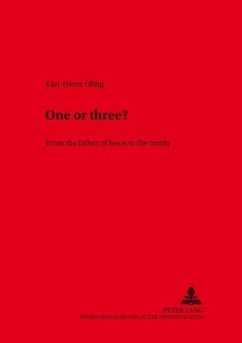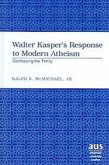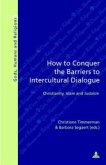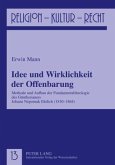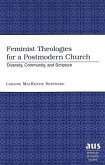The study shall demonstrate that the dogma of the Trinity is a product of historical developments. Jesus believed in Jahwe and called him Father. This monotheism was a central subject of the earliest Christian preachings. The contact between the Christianity and the hellenistic thinking and philosophy led to the trinitarian concepts in the second century: the activities of God were interpreted "ad extra", to the outside (the creation "in the beginning" and the guidance over the history of Israel and of the church) as ontological hypostasis in the concept of the "Word" and the "Holy Ghost". In the third century they lost their temporal character and became eternal "qualities" of God himself. Since the fifth century the western Latin theology produced the doctrine of the three persons in God.

